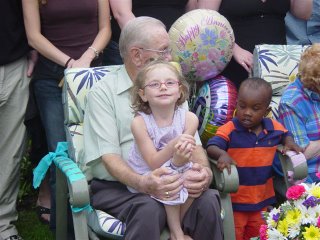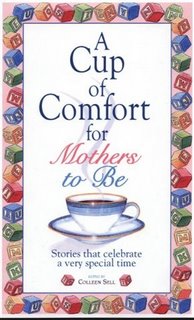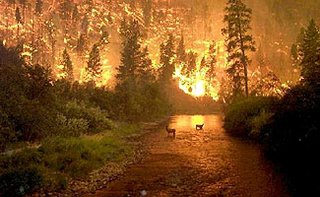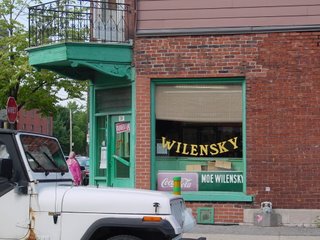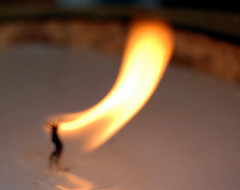The Canadian Chick meets Ellen Meister
 Debut Author
Debut Authoran Interview with Ellen Meister
by
Patricia Parkinson
Early Tuesday morning I slugged (I set my alarm to do this) to the couch in my blue robe carrying my coffee about to call someone that I'd never met, someone I admire and respect, am inspired by and in awe of, okay, I'm star struck by this person. I, The Canadian Chick, called none other that the soon to be best selling novelist, Ellen Meister. Her book, "Secret Confessions of the Applewood PTA," is being released by Morrow today!
AGHGHGHHGHGH!!!
My hands shook and my palms sweated, thankful that although Ellen could hear me, she wouldn't be able to see the mess I was in. I could fake that I knew what I was doing. With my daughter snuggled next to be, holding the recorder close to the receiver, I pushed speaker phone, and just like that, I was talking to a celebrity!
CC: So Ellen, this is so great, I'm so happy you agreed to do this and well, I want to know, what's happening in your mind now, have you changed, how has your life changed with your book , what, 7 days from being published? What's going on?
She laughed. she has a great laugh and very New York Woman not to be messed with sort of voice that is both kind and confident.
EM: Well, I'm still a mom. I still have a house to run and to clean or to not, which is more the case lately."
CC: You don't have staff?
Laughter, both of us, two friends, hanging out having coffee.
EM: No, no. We don't have staff. It's a very non-glam life. I still run around in my minivan with the kids, go to the supermarket, do the laundry, get the oil changed, and all the other very non-glamorous stuff that has to get done.
We both laughed.
CC: I have to know before we gone any further. What are you wearing?
Do I have my priorities straight or what?
EM: I'm wearing a pale green sleeveless top and black yoga pants. Very comfy.
CC: You see for me, being a Canadian, living in Long Island seems very like the Kennedy's or something."
EM: Laughing, Nooooo, Long Island is a very densely populated suburban community, mostly middle class. That kind of old money--with Great Gatsby type homes and lifestyles--is still here in certain pockets on the North Shore, but it's the exception not the rule. I will say this—we have beautiful beaches. Jones Beach is sublime. And then of course there's The Hamptons,where the beautiful people meet.
I figure Ellen goes to the Hamptons. Check out her picture!!
CC: I imagine you must feel a bit like Cinderella waiting for the eve of the publication. On the day the book is released are you going to hit every book store in New York City and tell them, “This is me! I wrote this!”
EM: I don't think anything particularly auspicious is going to happen on that particular day. The big thing is that I’m doing a book launch on August 3. It's a wine and cheese party/reading/signing at a wonderful independent Long Island book store called Book Revue. I'm thrilled to be doing an event there. So that's going to be a very big deal for me.
CC: How many people are you expecting?
EM It's hard to say at this point, but I'd say there’ll be at least one hundred, maybe one hundred fifty. It should be a pretty good crowd.
CC: It begs to be asked, what are you going to wear? Did you buy something new? You have to get something new, or maybe you'll have a designer approach you…and…well…both of us laughed.
EM: I found something that I think is writerly enough and not too dressy. I bought myself a light green, lime, silk blazer to wear over a straight black sleeveless dress.
CC: You're going to look great! Where do you shop?
EM: I don't really love shopping but when I do shop, I love a bargain, so sometimes I go to the outlets malls. If I need something special I tend to go the big store-- I'm more of a department store gal than a boutique gal.
CC: How did you find out that "Secrets Confessions of the Applewood PTA" was going to be published? Did they phone you? Did they email you?
I got a phone call that came from my agent saying HarperCollins had come through with an offer, but that they were still negotiating. To my agent it was far from a done deal, so she wasn't exactly breaking out the champagne, but I freaked. Of course, I waited until I got off the phone. Then I screamed and jumped and acted like a crazy person. The only other person home was my middle son, who was nine at the time. I scared the heck out of the poor kid, but it was great that we got to share that heady moment.
CC: That's wonderful. What a great memory for both of you.
EM: laughing, she is a great laugher...Yes, yes...it is great
CC: So then, how long has it taken since you first started writing the book, to August the first, two thousand six?
EM: I got the original idea for this book at the end of 2000 .
CC: Holly crow. Six years.
EM: Yes, that it feels like a long time to me. But in the scheme of things I guess it isn't.
CC: I also read that you have a film agent and that you've said, you don't want to get your hopes up too high, but, I had also read on your website, that Booklist said that it's very possible your novel turn into a movie.
EM: Yes, the critic at book list thought is was a very cinematic sort of book. Hey, you never know. My fingers are crossed.
CC: So, who would play who in Applewood?
EM: It's fun to think about and, in fact, casting the three leads for Applewood is one of the favorite conversations I have with my husband. My husband suggested Amanda Peet for Maddie, which I thought was inspired. Maddie has a bit of physical humor, but she also has some sad, tender, difficult moments. Ruth is my hardest character to cast because she's a very brash, voluptuous re head, and it's very hard to find someone in Hollywood who can play that. Bette Midler would be perfect, but, there's just no current Bette Midler. I think Joely Fisher would be great.
CC: I like her too,
EM: Another idea for Ruth is Lorraine Bracco. I wouldn't have thought of her, but I read an interview with her in the New York Times Magazine section recently and she said, “Nobody knows I’m funny. I would love to play funny.” So I bet she'd make a kickass Ruth.
CC: It sounds like it.
EM: For Lisa, who’s more timid and has this interesting relationship with her mother, I like Laura Linney. You know who she is?
CC: Yes, I think she’s sensational.
EM: And Keith, the disabled husband, I’d like to see Steve Carell, who I adore, he’s so hilarious …
CC: Lisa’s husband? No it’s…
CCEM: Ruth’s husband!
CM: Right. Yes! I can so see this!
EM: Keith is impotent, but he’s also brain damaged and sexually uninhibited so he does some pretty wild things…
CCEM: Laughing about god only know what wild thing crossed our minds
CC: I am dying to read this! And find out what my local PTA is up to and join. When this novel comes out there’ll be a huge rush to join the PTA. You mark my words Ellen. Now I’ve also read a brief synopsis of the novel and an excerpt and am very intrigued by how the three women band together, overcome obstacles to get a George Clooney movie filmed at their children’s elementary school and I feel that women have the most powerful friendships, one of the most powerful relationships.
EM: Right,
CC: And to me, Secret Confessions of the Applewood PTA, has that feel, that women, especially together, can accomplish, well, anything.
EM: It’s definitely a friendship novel. I wanted these women to be smart and capable and to have all these layers to them—that was critical to me. I wanted to show, that yes, there’s this smiling PTA face, the perfect soccer mom, but that there’s also so much more to each of these women. Layers and layers of heartache and joy and introspection, This is what I wanted to reveal.
CC: I look at you and I look at your life, at the mother and the writer and the friend, and you’re very inspirational to me. I know that being a mother myself, I take my kids to school, I drop them off in my minivan as well and a lot of the times I’ll look around me and think, “These people think I’m whacked," you know or…
CCEM: laugh and laugh.
CC: or you know, I’ll look around at them and I think well I’m maybe perceived in a different way than I really am and I look at them and I have to remind myself that we all struggle with the same things.
EM: That’s the thought that inspired me to write this particular book. I was actually at a PTA meeting and I thought, you know, these women don’t have any idea of who I am, they see this smiling face and they don’t know that there’s more to me than this.
CC: Exactly.
EM: There are many layers in my life, and then a thought occurred to me. I wondered, if everybody in the room feels something sort of similar—that there’s this façade and then there’s who she really is beneath all of this. No sooner did I have that thought, that I said, this is what I want to write about now. These women and all the intricate layers beyond the PTA face.
CC: you’ve got Applewood due to be released in seven days. And now, you've also got, The Smart One, book two, what’s the deadline for that?
EM: Now.
CCEM chuckle
CC: Today. It’s due today.
CCEM: laugh
EM: Well, The Smart One, this has been a real struggle for me, the end… I decided to rewrite the end and that’s what I’m working on right now. It’s hard to find the time because I’m trying to work on that while getting ready for the launch…
CC: and summer and the whole thing happening with the kids out of school. Now, are there any plans for a third novel?
EM: I sure hope so! I have an idea bank of things I'm dying to work on, but there’s not a word written, nothing sold, or anything like that. But as soon as I get past this, I want to start getting something together to show to my agents.
CC: Good for you, that’s excellent. Now I had also heard that you had said that you were thinking of doing an independent book tour. Do you still have plans for that?
EM: I was thinking about it, but everybody from my publicist to my agent talked me out of it. Apparently, tours are an ineffective use of funds for the author and the publisher.
CC: Really?
EM: Especially a debut author. It’s very hard to get people show up to readings for a new author. They convinced me that I could spend my time and energy and money better elsewhere.
CC: Well where you’re located, you’ve got a lot of opportunity.
EM: Yes, you’re right. When I say Long Island is densely populated you know it is, it really is. I'm also a short drive to several other large suburban New York markets.
CC: So you could just go and go and go.
EM: I can.
CC: Well, in Canada here, I plan on checking out all the bookstores and will be putting your book front and center. Now being a writer myself, I’ve been working on a novel, that’s not really going anywhere.(Starts to laugh manically) Speaking for myself, there’s always this sort of nagging thing in the back of my head that I can’t do this, you know it’s either fear of failure or fear of success or fear of completion, or just the fear I have that I’m going to be dedicating myself and nothing may become of it, so, I want to know, how did you manage to get the confidence to peruse this project?
EM: Mostly I was scared of getting to the end of the my life without ever having pursued my dream.
CC: This project, from start to finish has taken you six years, how much of that time did it take to write the book?
EM: It took about two years to write, including several false starts.
CC: I’m very fortunate that I know you somewhat, I've spoken to you on the internet, and this is really a priviledge that I’m able to speak to you for real and I've been so nervous about this,
CCEM: cracking up
CC: That's so true. Maybe some of them will be at the launch. Your parents are coming as well, from Florida. They must be extremely proud. You mention in your bio that they are avid readers.
EM; Not only are they avid readers, but my father always had aspirations to be a writer. In fact, on retirement, he starting writing columns for local newspapers.
CC: It’s so great that you can share this with them. And now,I was wondering, is there anything else that you’d like to say, what advise would you like to give to writers hoping to be the next Ellen Meister?
EM: What I can say is don’t write for a market. It’s not going to work. You have to write what feels right to you and that’s the only way you’re going to do something that really sings.
CC: I agree with that, and now, I’ve got this last question, which seems so typical and cliché but I’m pretending to be the Barbara Walters. If there was one word to sum up the experience of this journey, and where you’re at now, what would that word be.
EM: Exhilarating.
CC: I love it..laughing, that’s perfect, That’s so perfect. Look at you, your so amazing, I’m going to take you off the phone now, I’M GOING TO STOP RECORDING NOW
Ellen and I, I can call her Ellen now because, well, we're like this, (crossing fingers) and I hung up the phone after the interview feeling more inspired than before. It's going to be a huge success Ellen. Thank you for sharing the beginning of your great ride with us.
And to you readers, copies of Ellen's book is available through, Amazon.com
Buy it today!

